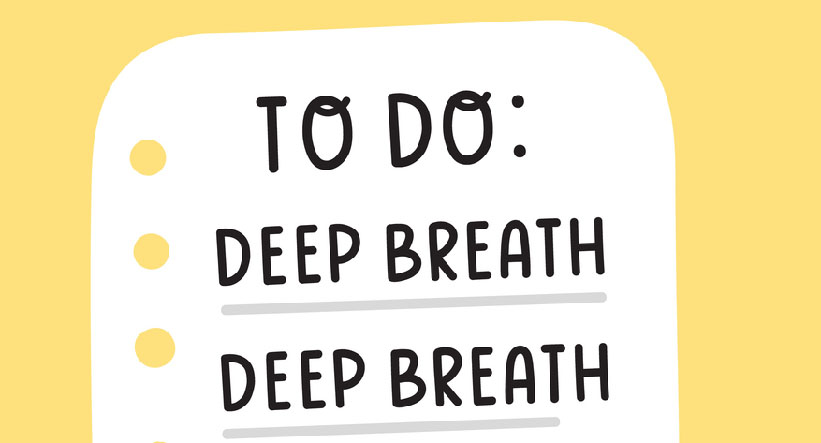
![]()
During moments of stress, like the current COVID-19 pandemic, your thoughts may be drawn toward past regrets and worries about the future. Thankfully, you possess a readily accessible tool that can be used to manage stress—your breath. Breath practices are a great way to become more in touch with your mind, body and spirit. During stressful moments, conscious breathing allows you to shift and release negative energy instead of storing it in your body. This is important because stored-up energy often manifests as muscle tension and other physical ailments. It can also increase alertness and oxygen flow and allow your body to release toxins more readily. Although breathing is something your body naturally does, it’s also a skill that can be sharpened.
Diaphragmatic breathing comes from the body’s dominant breathing muscle—the diaphragm. This type of breathing is effective and efficient. It can lead to feelings of relaxation instead of tightness. Diaphragmatic breathing is a great way to reduce stress. To get started, try the exercise below:
- Get into a comfortable position. Close your eyes and bring attention to your body and breath
- Place one hand on your abdomen, right below your navel, and the other hand on your upper chest. Take a deep breath in through your nose and out through your nose. Feel the coolness of the air as it enters in and the warmth as it flows out
- As you breath in and out through your nose, focus on shifting your breath so that you can feel the rise and fall of your breathing in your abdomen more than in your chest. In other words, make the hand that rests on your abdomen move more than the hand on your chest
- Take three more slow, deep breaths with conscious focus on the rise and fall of your abdomen. Continue to breathe fully and deeply, allowing and trusting the body as the breath slows and becomes more relaxed
The benefits of deep breathing extend beyond in-the moment stress relief. Studies have found that deep breathing helps balance the autonomic nervous system, which regulates involuntary bodily functions, such as temperature control and bladder function. This may help ease symptoms of stress-related disorders and mental health conditions such as anxiety, general stress, depression and post-traumatic stress disorder.

If you are concerned about your mental health, don’t hesitate to seek advice. BHS is available 24 hours a day, 7 days a week by calling 800-245-1150.

